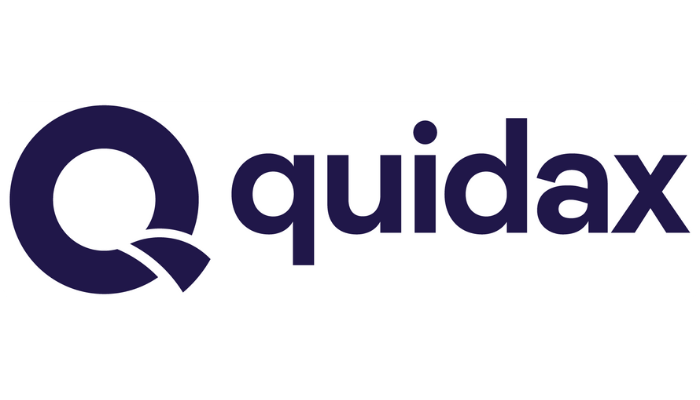DNA testing has become a common procedure in recent times due to its ability to provide valuable information about individuals and their genetic makeup. In Nigeria, the cost of DNA testing and the process involved can vary greatly depending on the hospital or laboratory you choose to use.
In this article, we will explore the cost of DNA testing in Nigeria, the requirements for conducting a DNA test, and the best hospitals for DNA testing in the country. Whether you are looking to confirm a biological relationship or are interested in tracing your ancestry, this article will provide you with the necessary information to make informed decisions regarding DNA testing in Nigeria.
What Is DNA?
A DNA test is a scientific technique used to analyze genetic material and identify specific DNA sequences in a person’s genetic code. In paternity testing, DNA samples are collected from both the alleged father and the child, and their DNA profiles are compared to determine whether the alleged father is the biological father of the child.
DNA testing is considered the most accurate method of determining paternity, with an accuracy rate of up to 99.99%. The test analyzes a number of different genetic markers, such as short tandem repeats (STRs), which are specific sequences of DNA that vary from person to person. By comparing the genetic markers of the alleged father and child, the test can determine whether there is a genetic match.
The DNA samples used in paternity testing can be collected using a number of different methods, including a cheek swab or a blood sample. Cheek swabs are the most common method of collection, as they are non-invasive and can be easily administered by a healthcare professional or DNA testing technician.
In addition to paternity testing, DNA testing can also be used to determine other types of familial relationships, such as sibling relationships or grandparent. DNA testing can also be used in forensic investigations, such as identifying suspects in criminal cases or identifying the remains of missing persons.
Read Also: Kuda vs Palmpay: Which Is The Best?
DNA Test Requirements
To conduct a DNA test in Nigeria, there are certain requirements that must be met. These requirements may vary depending on the hospital or laboratory where the test is being conducted, but some common ones include:
- Buccal swab or blood sample: The most common method of collecting DNA samples is through a buccal swab, which involves using a sterile swab to scrape the inside of the cheek to collect cells for DNA analysis. Blood samples may also be collected for DNA testing, especially in cases where a child or parent has a medical condition that may affect the accuracy of the test.
- Consent form: Before a DNA test is conducted, all parties involved must sign a consent form that outlines the purpose of the test, who will have access to the results, and how the results will be used.
- Proper identification: All individuals involved in the DNA test must provide a valid government-issued ID or passport to confirm their identity.
- Chain of custody: To ensure the integrity of the DNA sample and prevent tampering or contamination, strict chain of custody procedures must be followed throughout the entire testing process. This includes properly labeling and storing the samples, maintaining a log of who handled the samples, and documenting the movement of the samples from collection to analysis.
- Payment: DNA testing can be expensive, so payment for the test must be made in advance or at the time of sample collection. Prices can vary depending on the type of test, the laboratory used, and the location.
It’s important to note that the requirements for DNA testing may vary depending on the purpose of the test and the laboratory conducting the analysis. It’s always best to check with the specific testing facility to ensure you have all the necessary information and documentation before proceeding with a DNA test.
Best Hospitals For DNA Test In Nigeria
There are several hospitals and diagnostic centers in Nigeria that offer DNA testing services. Here are some of the best hospitals for DNA testing in Nigeria:
- Synlab Nigeria: Synlab is a leading laboratory service provider in Nigeria that offers a wide range of diagnostic services, including DNA testing. Their DNA testing service covers paternity, maternity, sibling, and kinship testing.
- Medbury Medical Services: Medbury Medical Services is a healthcare provider that offers a range of medical services, including DNA testing. Their DNA testing services include paternity testing, maternity testing, and relationship testing.
- PathCare Nigeria: PathCare is a leading laboratory service provider that offers a range of diagnostic services, including DNA testing. Their DNA testing services cover paternity, maternity, and relationship testing.
- Clina-Lancet Laboratories: Clina-Lancet Laboratories is a diagnostic laboratory that offers a range of medical services, including DNA testing. Their DNA testing services cover paternity, maternity, and relationship testing.
- DNALabs Nigeria: DNALabs Nigeria is a medical laboratory that specializes in DNA testing. Their DNA testing services cover paternity, maternity, sibling, and kinship testing.
Cost Of DNA Test In Nigeria
The cost of DNA testing in Nigeria varies depending on the type of test, the laboratory or hospital offering the service, and the location.
For paternity tests, the cost ranges from about N50,000 to N150,000, while more advanced tests such as ancestry testing or genetic health screening can cost upwards of N200,000 or more. It is important to note that these prices may vary from one laboratory to another, and additional costs may be incurred for specialized tests.
It is advisable to research and compare prices from different laboratories to find one that offers a reasonable price without compromising the quality of the test. In some cases, hospitals may offer DNA testing services at a lower cost, although this may not always be the case.
When considering the cost of DNA testing, it is important to keep in mind the potential benefits and implications of the test results. The cost may be worth it in situations such as legal cases where paternity needs to be established or in medical situations where genetic testing can aid in the diagnosis and treatment of certain conditions.
FAQS
How much is DNA in Nigeria hospital?
The cost of DNA test in Nigeria hospitals varies depending on the type of test, location, and the hospital. Generally, it ranges from N50,000 to N200,000.
Which hospital runs DNA tests in Nigeria?
There are several hospitals in Nigeria that run DNA tests. Some of the popular ones include:
- DNA Centre Nigeria
- Synlab Nigeria
- Medbury Medical Services
- PathCare Nigeria
- Clina-Lancet Laboratories
How much is DNA in hospitals?
The cost of DNA tests in hospitals varies depending on the type of test, location, and the hospital. Generally, it ranges from N50,000 to N200,000.
How much does DNA test cost in a Government hospital in Nigeria?
The cost of DNA tests in government hospitals in Nigeria is usually cheaper compared to private hospitals. It ranges from N30,000 to N100,000.
How much is a DNA test to see who the father is?
The cost of a DNA paternity test in Nigeria ranges from N50,000 to N200,000, depending on the hospital and location.
Conclusion
Unlocking the secrets of our genetic makeup through DNA testing is becoming increasingly popular in Nigeria. With the availability of affordable and reliable testing options, individuals can now gain valuable insights into their family history and genetic predispositions. While the cost of DNA testing in Nigeria varies depending on the hospital or laboratory, it is clear that this technology has the potential to revolutionize the way we approach health and ancestry research.






